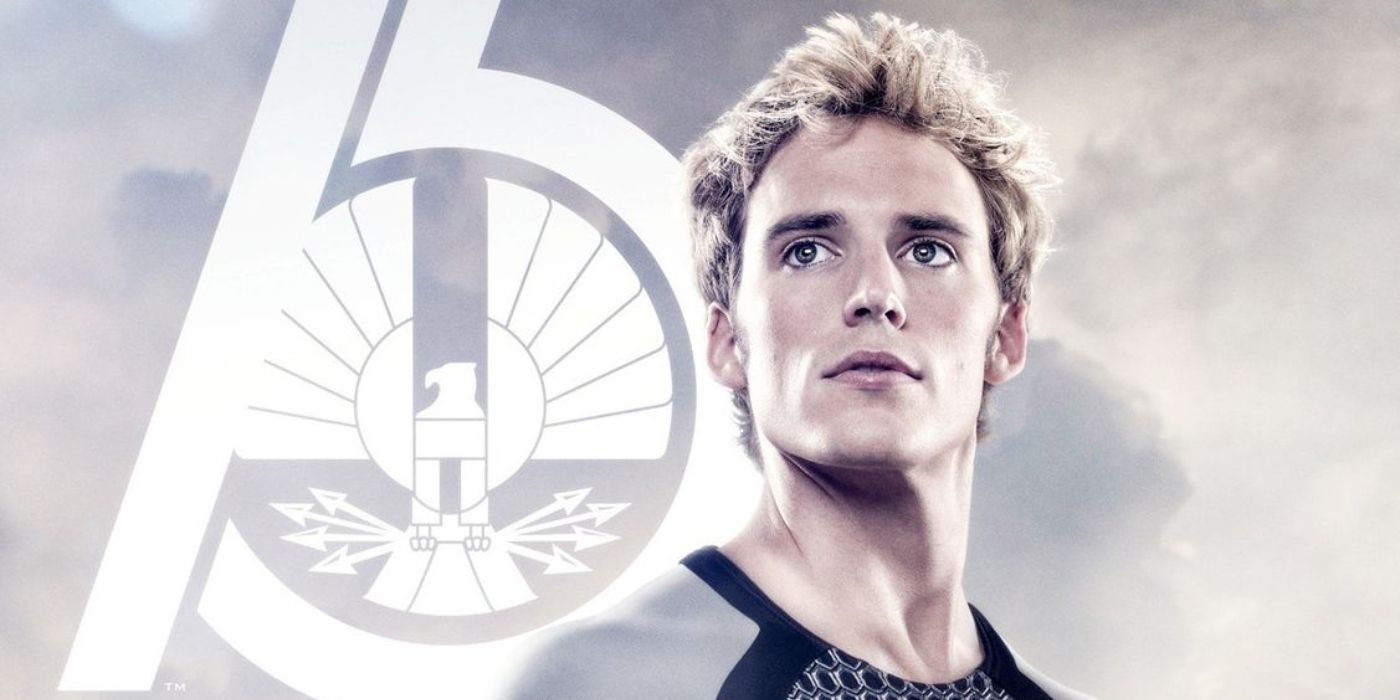Finnick Odair has a curious position in the film adaptations of The Hunger Games. He plays a pivotal role in Katniss Everdeen's rise as a revolutionary leader, notably in the way he facilitates her escape from the Quarter Quell at the conclusion of The Hunger Games: Catching Fire. Yet the movies leave a great deal unsaid, and despite his striking presence, much of his character background from the novel never makes it to the screen. It's an unfortunate necessity sometimes, especially when adapting a story as detailed and sprawling as The Hunger Games.
In light of that, it's easy for new fans to miss the reasons for Finnick's loyalty. Considering that it comes at a considerable cost -- and considering that Katniss's release from the Quarter Quell plays such a key role in the story -- questions about why arise naturally. The original books go into further detail about the betrayal and exploitation that turned Finnick against the Capitol.
Finnick Is Betrayed by the Capitol in The Hunger Games Movies
The title of The Hunger Games refers to an annual contest in the story's future dystopia of Panem, in which two young people are chosen from each of 12 subjugated Districts to fight to the death in a tailor-made arena. All of Panem watches -- it's a spectacle akin to the Super Bowl or the World Cup -- and the lone survivor each year becomes a celebrity overnight. Ostensibly they're pampered and treated like royalty: untouchable after surviving the Games and joining the ranks of social elites. Katniss finds herself thrust into their world after she and her friend Peeta unexpectedly win the 74th Hunger Games.
Finnick is another winner, from nine years earlier, and at first, he seems far from trustworthy. That's partially due to the machinations of the Capitol's sinister President Snow. He changes the rules for the Quarter Quell -- the 75th Games taking place a year after Katniss's win -- so that it contains only survivors of previous Hunger Games. It's a way of eliminating Katniss, whose popularity and borderline defiance of Snow's order make him nervous. It also reneges on the Capitol's previous promise that those who survive The Games be kept safe from harm.
The movies pin a good deal of Finnick's motives on that act of tyranny. He and several other participants in the Quarter Quell secretly pledge to protect Katniss from the other participants, who have no qualms about killing her. He reveals as much with his golden bangle, which he shows to Katniss at a key moment during the contest.
Finnick's Sense of Betrayal Goes Deeper in the Books
As Haymitch explains earlier in Catching Fire, winning The Games isn't the dream come true it's made out to be. Survivors have to greet and prepare new participants in The Games from their Districts every year, meaning they get to know a couple of nice kids a few days before their inevitable violent deaths. "Winners" are also used as political footballs among the Capitols' elite and have to serve as spokespeople for the very process that left them psychologically scarred. In the book, Finnick reveals the true depths of their exploitation. Snow forced him to serve as a sex slave for other members of the elite, and threatened to kill his family if he refused. His life since then has been a nightmare.
That provides far more grounding to his motives than the film lets on, though it's more a matter of keeping the running time contained than neglecting the character. The novels expound on all manner of horrors perpetrated by the Capitol. Finnick's story is just one of many, and the films had to pick and choose how much they reveal. Catching Fire shows enough to give him proper motivation, but it takes the novels to fully develop just why he hates the Capitol so much.


